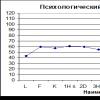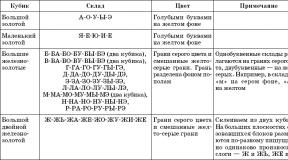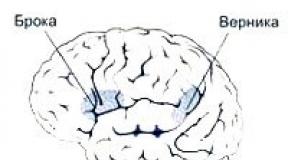The Nihilist Theme in Russian Literature of the 19th Century - Bazarov, Volokhov, Verkhovensky: An Experience of Literary Comparison. The meaning of the word nihilists. in the literary encyclopedia Russian nihilists
The word "nihilist" is literally translated from Latin as "nothing". This is a person who does not recognize any authority. This term was widely used in literature and journalism of the 60s of the 19th century.
The course of public thought
In Russia, this trend gained maximum distribution after the novel by I.S. Turgenev "Fathers and Sons". Nihilism manifested itself as the public mood of the commoners who denied the established norms of morality. These people refuted everything that was customary. Accordingly, a nihilist is a person who does not recognize anything. Representatives of this movement rejected religious prejudices, despotism in society, art, literature. Nihilists advocated the freedom of a woman's personality, her equality in society, and also to a certain extent promoted selfishness. The program of this movement was very schematic, and those who promoted it were too straightforward.
If we talk about nihilism as a worldview, then it cannot be called integral. A nihilist is a person who differed only in the expression of rejection of the surrounding reality. The ideas of this social movement at that time were expressed by the magazine "Russkoe slovo".
Nihilism before Fathers and Sons
As mentioned above, the term itself became widespread after the novel "Fathers and Sons" was published. In this work, the nihilist is Evgeny Bazarov. He had followers, but more on that later. It was after the publication of the novel that the term "nihilism" spread. Prior to that, in magazines, such ideas were called "negative direction", and its representatives were called "whistlers."
For opponents of a social movement, a nihilist is one who sought to destroy moral foundations and promoted immoral principles.

"What is Bazarov?"
This is the question that P.P. Kirsanov to his nephew Arkady. The words that Bazarov is a nihilist, Pavel Petrovich's brother amazed. For representatives of his generation, life without principles is impossible.
It should be noted that nihilists in literature are, first of all, the heroes of Turgenev. The most striking, of course, is Bazarov, who had followers, Kukshina and Sitnikov.

Nihilist principles
For representatives of this trend, the main principle is characteristic - the absence of any principles.
Bazarov's ideological position is most vividly reflected in disputes with Pavel Petrovich Kirsanov.
Heroes have different attitudes towards the common people. Bazarov considers these people "dark", Kirsanov touches the patriarchy of the peasant family.
For Eugene, nature is a kind of pantry in which a person can manage. Pavel Petrovich admires her beauty.
The main nihilist in Fathers and Sons has a negative attitude towards art. Reading literature for Bazarov is an empty pastime.
Evgeny and Pavel Petrovich are representatives of different social strata. Bazarov is a commoner. This largely explains his attitude towards the people and indifference to everything beautiful. He imagines how hard life is for those who cultivate the land. Russian nihilists, as a rule, were really commoners. This is probably due to their revolutionary attitude and rejection of the social system.

Bazarov's followers
When asked which of the heroes was a nihilist in Fathers and Children, one can, of course, answer that Arkady Kirsanov considered himself Bazarov's disciple. Kukshina and Sitnikov also pretend to be his followers. However, can they be considered nihilists?
Arkady, although he tries to imitate Bazarov, has a completely different attitude towards art, nature, and relatives. He adopts only Bazarov's cold manner of communication, speaks in a low voice and behaves cheekily. Arkady is a well-mannered young man. He is educated, sincere, intelligent. The younger Kirsanov grew up in a different environment, he did not have to earn money for his studies.
However, when Yevgeny Bazarov falls in love with Anna Odintsova, it seems that his behavior also carried a tinge of pretense. Of course, he is much firmer than Arkady, he shares the ideas of nihilism deeper, but at the same time he still could not reject all values with his soul. At the end of the novel, when Bazarov is awaiting his own death, he recognizes the power of parental love.
If we talk about Kukshina and Sitnikov, then they are portrayed by Turgenev with such irony that the reader immediately understands that one should not perceive them as “serious” nihilists. Kukshina, of course, is “springing”, trying to appear different from what she really is. The author calls her "a creature", thereby emphasizing fussiness and stupidity.
The writer pays even less attention to Sitnikov. This hero is the son of an innkeeper. He is narrow-minded, behaves cheekily, copying, probably, the manner of Bazarov. He has a dream to make people happy, using the money earned by his father for this, which expresses a disrespectful attitude towards other people's work and towards parents.
What did the author want to say with such an ironic attitude towards these characters? Firstly, both heroes personify the negative aspects of the personality of Bazarov himself. After all, he does not show respect for the established values that were laid down many centuries ago. Bazarov also shows disdain for his parents, who live only in love for their only son.
The second point that the writer wanted to show is that the time of the "bazaars" has not yet come.

The history of the origin of the term "nihilism"
Thanks to Turgenev, the concept of nihilism became widespread, but he did not come up with this term. There is an assumption that Ivan Sergeevich borrowed it from N.I. Nadezhin, who in his publication applied it to negatively characterize new literary and philosophical movements.
Nevertheless, it was after the spread of the novel "Fathers and Sons" that the term received a socio-political connotation and began to be widely used.
It must also be said that the literal translation of this word does not convey the content of this concept. Representatives of the current were not at all devoid of ideals. There is an assumption that the author, having created the image of Bazarov, expresses condemnation of the revolutionary democratic movement. At the same time, Turgenev says that his novel is directed against the aristocracy.
So, the term "nihilism" was originally conceived as a synonym for the word "revolution". However, the word gained such popularity that a seminarian who preferred university studies and abandoned a spiritual career, or a girl who chose her husband at the behest of her heart, and not at the behest of relatives, could consider herself a nihilist.
The word nihilism is familiar to many people, but only a few know its true meaning. Literally translated, nihilists are Latin "nothing". From here, you can understand who the nihilists are, that is, people in a certain subculture and trend who deny norms, ideals and generally accepted norms. Such people can often be found in a crowd or among creative people with out-of-the-box thinking.
Nihilists are ubiquitous, in numerous literary publications and sources of information they are spoken of as a complete denial, a special mentality and a social and moral phenomenon. But historians say that for each era and time period, nihilists and the concept of nihilism denoted slightly different trends and concepts. Few people know, for example, that Nietzsche was a nihilist, as well as a large number of famous literary men.
The word nihilism comes from the Latin language, where nihil is translated as "nothing." It follows from this that a nihilist is a person who is in the stage of complete denial of the concepts, norms and traditions imposed by society, in addition, he can show a negative attitude towards some and even all aspects of social life. Each cultural and historical era implied a special manifestation of nihilism.
History of origin
For the first time, people encountered such a cultural trend as nihilism back in the Middle Ages, then nihilism was presented as a special teaching. Pope Alexander III became its first representative in 1179. There is also a false version of the doctrine of nihilism, which was attributed to the scholasticism Peter, this semblance of subculture denied the human nature of Christ.

Later, nihilism also touched Western culture, for example, in Germany it was called the term Nihilismus, it was first used by the writer F.G. Jacobi, who later became known as a philosopher. Some philosophers attribute the emergence of nihilism to the crisis of Christianity, accompanied by denial and protests. Nietzsche was also a nihilist, recognizing the current as an awareness of the inconsistency and even the illusory nature of the Christian supra-worldly God, as well as the idea of progress.

Expert opinion
Victor Brenz
Psychologist and self-development expert
Nihilists have always based on several statements, for example, there is no substantiated proof of higher powers, creator and ruler, there is also no objective morality in society, as well as truth in life, and no human action can be preferable to another.
Varieties
As mentioned earlier, the meaning of the word nihilist at different times and eras could be slightly different, but in any case, it was about a person's denial of objectivity, moral principles of society, traditions and norms. As the doctrine of nihilism arises and develops, its modifications over the eras and different cultures, today experts share several varieties of nihilism, namely:
- worldview philosophical position that doubts or completely denies generally accepted values, morals, ideals and norms, as well as culture;
- mereological nihilism, denying objects made of particles;
- metaphysical nihilism, which considers the presence of objects in reality not at all obligatory;
- epistemological nihilism, which completely denies any teachings and knowledge;
- legal nihilism, that is, the denial of a person's duties in an active or passive manifestation, the same denial of the established laws, norms and rules of the state;
- moral nihilism, namely a metaethical view that denies moral and immoral aspects in life and society.
Based on all varieties of nihilism, we can conclude that people with such concepts and principles deny any norms, stereotypes, morals and rules. According to most experts and specialists, this is the most controversial and sometimes conflicting worldview position that takes place, but does not always receive approval from society and psychologists.
Nihilist preferences
In fact, a nihilist of our day is a person who is based on spiritual minimalism and a special theory of mindfulness. The preferences of nihilists are based on the denial of any meaning, rule, norm, social rule, tradition or morality. Such people do not worship any rulers, they do not recognize authorities, do not believe in higher powers, deny laws and public demands.
Do you consider yourself a nihilist?
YesNo
Psychologists note that nihilism is in fact a close flow to realism, but at the same time it relies exclusively on a factual base. This is a kind of skepticism, thinking at a critical point, but in the form of an extended philosophical interpretation. Experts also note the reasons for the emergence of nihilism - a heightened sense of self-preservation and human egoism, nihilists recognize only the material, denying the spiritual.
Nihilists in literature
A well-known literary work that touched on the concept of nihilism is the story "Nihilist" by the author Sophia Kovalevskaya about the Russian revolutionary movement. The denunciation of "nihilism" in the form of crude caricature can be traced in such famous literary works as "The Break" by Goncharov, "At Knives" by Leskov, "The Shaken Sea" by Pisemsky, "Marevo" by Klyushnikov, "The Fracture" and "The Abyss" by Markevich and many other works ...
"Fathers and Sons"
Nihilists in Russian literature are, first of all, the heroes from Turgenev's books, remembered by everyone, for example, the reflective nihilist Bazarov and Sitnikov and Kukushkin followed his ideology. Bazarov's atypical worldview position can already be traced in dialogues and disputes with Kirsanov Pavel Petrovich, showing a different attitude towards the common people. In Fathers and Sons, the nihilist expresses a pronounced rejection of art and literature.

Nietzsche
It is also known that Nietzsche was a nihilist, his nihilism consisted in the devaluation of high values. Philosopher and philologist, Nietzsche linked the nature of man and values, but immediately emphasized that man himself devalues everything. The famous philosopher insisted that compassion is a destructive quality, even when it comes to loved ones. His nihilism is nothing more than the idea of a superman and a Christian ideal that is free in every sense.

Dostoevsky
In the works of Fyodor Mikhailovich Dostoevsky, there are also characters of nihilists. In the writer's understanding, a nihilist is a type of tragic thinker, rebel and denier of social norms, as well as an opponent of God himself. If we consider the work "Demons", the character Shatov, Stavrogin and Kirillov became a nihilist. This also includes Dostoevsky's book Crime and Punishment, where nihilism reached the brink of murder.

What kind of nihilist is he today?
Many philosophers are inclined to believe that modern man in himself is already a nihilist to some extent, although the modern trend of nihilism has already branched out into other subspecies. Many people, not even knowing about the essence of nihilism, sail a ship during their lives, which is called nihilism. A modern nihilist is a person who does not recognize any values, generally accepted norms and morals, does not bow to any will.

List of notable nihilists
For an illustrative example of behavior, experts conducted research, after which they compiled a list of the most memorable personalities from different eras, promoting nihilism.

Notable nihilists list:
- Nechaev Sergei Gennadievich - revolutionary of Russia and author of the "Catechism of the Revolutionary";
- Erich Fromm is a German philosopher, sociologist and psychologist who considers the term nihilism;
- Wilhelm Reich - Austrian and American psychologist, the only student of Freud to analyze nihilism;
- Nietzsche is a nihilist who denied the existence of material and spiritual values.
- Seren Kierkegaard is a nihilist and Danish religious philosopher and writer.
- O. Spengler - promoted the idea of the decline of European culture and forms of consciousness.
Based on all interpretations and trends, it is difficult to clearly characterize the essence of nihilism. In each epoch and time interval, nihilism proceeded in different ways, denying either religion, then the world, then humanity, then power.
Output
Nihilism is a radical movement that denies everything valuable in the world, from spiritual to material benefits of mankind. Nihilists adhere to absolute freedom from power, state, prosperity, faith, higher powers and society. Today, the modern nihilist is significantly different from those who appeared in the Middle Ages.
NIGILISM IN RUSSIA. In Russia, the term "nihilism" was first used by NI Nadezhdin in the article "A host of nihilists" published in 1829 in the "Bulletin of Europe". A little later, in the 30s – 40s. 19 century, it was used by N.A. Polevoy, S.P. Shevyrev, V.G. Belinsky, M.N. Katkov and a number of other Russian writers and publicists, while using the term in different contexts. Both positive and negative moral connotations were associated with it. MABakunin, SM Stepnyak-Kravchinsky, PA Kropotkin, for example, put a positive meaning into the term "nihilism", not seeing anything bad in it. The situation changed in the 2nd half. 19th century, when the term "nihilism" acquired a qualitatively new and quite definite meaning. Nihilists began to call the representatives of the radical trend of the sixties, who preached a revolutionary worldview, denied social (inequality of estates and serfdom), religious (Orthodox Christian tradition), cultural (“official philistinism”) and other official foundations of society in pre- and post-reform Russia , generally accepted canons of aesthetics and preaching vulgar materialism and atheism. A distinctive feature of Russian nihilism is an attempt in the field of understanding social phenomena to rely on the natural science theory of Darwinism and to extrapolate its methodology to the processes of the evolution of society (man is an animal; the struggle for existence is the basic law of the organic world; the triumph of the species is valuable and important, the individual is a magnitude, not noteworthy). The mouthpiece of a similarly understood nihilism in Russia at the beginning. 60s 19th century became the journal "Russian Word", in which DI Pisarev played the leading role. At the same time, however, Pisarev himself ignored the term "nihilism" and preferred to call himself and his associates "realists." Such an interpretation of the term "nihilism" became widespread with the publication in 1862 of the novel by I.S. Turgenev "Fathers and Sons", the protagonist of which, a "nihilist" student Bazarov, defended the idea that "at the present time, denial is most useful." and came out with destructive criticism of the social structure, public morality, the way of life of the ruling strata of Russian society. Subsequently, Russian literature gave a whole gallery of images of nihilists from Rakhmetov and Lopukhov in the works of Chernyshevsky (where images of nihilist revolutionaries were written out with great sympathy) to explicit antiheroes in the novels of Dostoevsky, Pisemsky, Leskov, and others. In the 2nd floor. 19th century the term "nihilism" was actively used by right-wing conservative journalism to characterize the representatives of revolutionary populism of the 1860s – 70s. and the Russian liberation movement as a whole.
A new page in the history of the interpretation of the phenomenon of "Russian nihilism" was opened in the first decades of the 20th century. S.L. Frank and N.A. Berdyaev. In his article "Ethics of Nihilism" (collection Vekhi, 1909), Frank declared "nihilistic moralism" to be the main feature of the spiritual physiognomy of the Russian intellectual, called Peter I the first Russian nihilist, while describing the Bolsheviks as an expression of "universal denial." Characterizing Russian nihilism, Berdyaev distinguished between its narrow ("emancipatory mental movement of the 60s") and broad (currents of thought that deny "God, spirit, soul, norms and higher values") meanings ("The origins and meaning of Russian communism") ... Considering Russian nihilism as a religious phenomenon in its essence, Berdyaev, however, defines its origins in a contradictory way, considering them either Orthodox or Gnostic. The nihilistic mentality, declared in the images of Bazarov, Rakhmetov and others, transforming in the course of historical development, continues in Russian communism, where, in particular, it acquires some features of theomachism in the spirit of the vulgarized Nietzsche, for example. at M. Gorky.
Nihilism in Russia is not an ideology or a worldview; it is a specific socio-psychological, usually unreflected, attitude, a special way of responding to a variety of phenomena of social life, characterized by hypertrophied categoricality, “totality” of denial, non-dialectical denial, when nothing positive, rational is recognized or accepted in the denied phenomena; nihilism, as a rule, is expressed in derogatory, accusatory and even abusive terms; he is hostile to any compromise. There were nihilists of one kind or another in the most diverse social movements and currents of thought, but chiefly. the phenomenon of nihilism was characteristic of the extreme left and right radical directions. In the left-wing radical and revolutionary circles of the 19th century. nihilism was most clearly manifested among the publicists of the "Russian Word" headed by Pisarev and in the "anarchist" movement, in the 20th century in anarcho-syndicalism and in such an anti-intellectual movement as the "Makhaevshchina" (V.K. Makhaisky and others) , in the early years of Soviet power in the proletarian movement. On the right flank of the spectrum of social movements in Russia in the 19th century. clearly nihilistic motives were especially characteristic of the speeches and writings of the editor of the obscurantist journal of the 1940s. "Mayak" SO Burachek, publisher of no less obscurant magazine of the 60s. "Home talk" by V.I. Askochensky, for Konstantin Leontiev, the ideologists of the Black Hundred movement early. 20th century.
V.P. Vizgin, V.F. Pustarnakov, E. Yu. Soloviev
New Philosophical Encyclopedia. In four volumes. / Institute of Philosophy RAS. Scientific ed. advice: V.S. Stepin, A.A. Guseinov, G.Yu. Semigin. M., Thought, 2010, vol.III, H - C, p. 85-86.
Literature:
Katkov M. About our nihilism. About Turgenev's novel. - "Russian Bulletin", 1862, No. 7;
Gogotsky S. Nihilism. - He's the same. Philosophical Lexicon, vol. 3. К., 1866;
De-Poulet M. Nihilism as a Pathological Phenomenon of Russian Life. - "Russian Bulletin", 1881, No. 11;
Zion I. Nihilists and Nihilism. M., 1886;
Strakhov N.N. From the history of literary nihilism 1861–65. SPb., 1890;
Alekseev A.I. On the history of the word "nihilism". - In the book: Collection of articles in honor of Acad. A.I.Sobolevsky. Articles on Slavic philology and Russian literature. M. - L., 1928;
Vorovskiy V.V. Bazarov and Sanin. Two nihilisms. - Works, t. 2. M., 1931;
Stepnyak-Kravchinsky S.M. Nihilism. - He's the same. Underground Russia. M., 1960;
A.I. Novikov Nihilism and Nihilist. Experience of critical characterization. L., 1972;
Dostoevsky F.M. Mr. Shchedrin, or the Schism in the Nihilists. - Collected. op. in 30 t., t. 20. L., 1980;
Kozmin B.P. Two words about the word "nihilism". - He's the same. Literature and history. Sat. articles. M., 1982;
Karlowisch N. Die Entwickelung des russischen Nihilismus. V., 1880;
Oldenberg K. Der russische Nihilismus von seinen Anfängen bis zur Gegenwart. Lpz., 1888;
Coquart A. Dmitri Pisarev (1840-1868) et idéologie du nihilisme russe. P., 1946;
Hingley R. Nihilists. Russian Radicals and Revolutionaries in the Reign of Alexander II (1855–81), 1967;
Lubomirski J. Le nihilisme en Russie. P., 1979.
In our area, the word nihilism is still perceived incorrectly. This began with Turgenev's novel Fathers and Sons, where he did not call Bazarov a “nihilist”, who denied the views of the “fathers”. The tremendous impression made by the work "Fathers and Sons" made the term "nihilist" winged. In his memoirs, Turgenev said that when he returned to Petersburg after the publication of his novel - and this happened during the famous Petersburg fires of 1862 - the word "nihilist" had already been picked up by many, and the first exclamation that escaped the lips of the first an acquaintance that Turgenev met was: "Look what your nihilists are doing: they are burning Petersburg!"
In fact, nihilism is a denial of the existence of independent "meanings" in any form: including denial of the special meaningfulness of human existence, the significance of generally accepted moral and cultural values, and non-recognition of any authorities. Nihilism is close to realism and relies only on a factual basis. In fact, nihilism is close to critical thinking and skepticism, but has a broader philosophical interpretation. For me, classical nihilism is the theoretical basis for minimalism and mindfulness. Therefore, I offer you for reflection the following text by Vijay Prozac "Faith in nothing".Belief in Nothing
Nihilism confuses people. “How can you care about something, or strive for something, if you believe that nothing matters?” They ask.
In turn, nihilists point out the assumption of inherent meaning and the problems of this assumption. Do we need existence to mean anything? In any case, existence remains as it is, no matter what we think about it. We can do with it what we want. Some of us will desire more beauty, more efficiency, more functionality, and more truth, while others will not. This leads to conflict.
Nihilists, who are not some sort of "anarchist kids," tend to distinguish between nihilism and fatalism. Nihilism says nothing matters. Fatalists say that nothing matters and nothing matters to them personally. It's the difference between not having an authority figure telling you what is right and giving up on the idea of doing something because no one is going to claim that what you are doing is going to be right.
What is Nihilism?
As a nihilist, I understand that there is no meaning. If we disappear as a species, and our beautiful world evaporates, the universe will not cry for us (this state is called a miserable delusion). No gods will interfere. It just happens, and the universe continues on. We will not be remembered. We will simply cease to exist.
In the same way, I recognize that when I die, the most likely outcome is the cessation of being. At this point, I will cease to be the source of my thoughts and feelings. These feelings existed only within me, being only electro-chemical impulses, and they will no longer be there when I leave.
Further, I admit that there is no gold standard for life. If I point out that living in polluted wastelands is stupid and pointless, others may not see it. They may even kill me when I mention it. Then they will move on, and I will be gone. Indifferent to their polluted place, they will continue to live there, regardless of the other existing option.
A tree falling imperceptibly in the forest makes a sound. The forest cannot recognize it as sound, because the forest is the interaction of many forms of life, and not the organization of some central principle or consciousness. They just do what they do. Likewise, the playing of Beethoven's Ninth Symphony does not evoke any reaction from the plate of yeast. Insensitivity remains inconsiderate, as does the universe itself.
Many people feel “marginalized” when they think about it. Where is the Great Father, who will hear their thoughts, test their feelings, and tell exactly what is right and what is not? Where is the finished proof, the word of God, written on the wall? How do we definitely know it's true, and if it's true, then is it really that important?
Meaning is a human attempt to shape the world in our own imaginations. We need a meaning for existence, but we feel doubtful when we try to claim it as our own creation. Thus, we expect some external meaning that can be shown to others, and they will agree that it exists. This forces us to condemn all ideas we encounter as threats or confirmations of a projected external meaning.
This distant mentality further confirms our tendency to view the world as alienated in consciousness. In our mind, cause and effect are one and the same; we use our will to formulate an idea, and here it is, in symbolic form. When, however, we try to apply an idea to the world, we can estimate how the world will react to it, but we are often mistaken and this raises doubts.
As a result, we want to separate the world from consciousness and live in a world created in consciousness. In this humanistic point of view, every person is important. Every human emotion is sacred. Every human choice deserves respect. Trying to plant your own projected reality wherever you can, out of fear of the inhumanity of the world as a whole, is going against the world.
Nihilism nullifies this process. He replaces external meaning with two important points of view. First, it is pragmatism; questions are consequences of physical reality, and if the spiritual world exists, it must function in a reality parallel to the physical. Secondly, it is preferentialism; rather than “proving” meaning, we choose what is attractive — and recognize that biological origins determine our needs.
By rejecting pathetic anthropomorphic delusions, such as our inherent "meanings", we allow ourselves to get rid of anthropomorphism. The meaning of morality (or any other meaning in human life) is discarded. Such entities are consequences. The consequences are not determined by their influence on people, but by their influence on the world as a whole. If a tree falls in the forest, it makes a sound; if I exterminate a species and no one sees it, it happened anyway.
The dictionary will tell you that "Nihilism is a doctrine that denies the objective basis of truth and especially moral truths." But this is not a doctrine, but a method (scientific method) that begins to creep out of the ghetto of our minds. This will quiet the part of our mind that claims that only our human points of view are real, and the universe must adapt to us instead of thinking sensibly, adapting to the universe itself.
From this point of view, nihilism is the gateway and foundation of philosophy, not philosophy in itself. This is the end of anthropomorphism, narcissism and solipsism. This is when people finally develop and take control of their own mind. This is the starting point when we can return to philosophy and re-analyze everything that our point of view is closer to reality outside of our mind.

Spiritual Nihilism
While nihilism is considered by many to be a rejection of spirituality, a clear statement of nihilism is a lack of inner meaning. This does not exclude spirituality, perhaps only the feeling of its inalienability. This means that the spirituality of nihilism is exclusively transcendental, i.e. observing the world and finding beauty in it, we discover spirituality that goes beyond it; we do not require a separate spiritual authority or lack thereof.
It would be wrong to say that atheism or agnosticism is characteristic of nihilism. Atheism is inconsistent: ascribing meaning to the denial of God is false objectivity, as are claims that it is possible to prove the existence of God. Agnosticism makes spirituality revolve around the concept of uncertainty about the idea of God. Secular humanism replaces God with idealized personalities. All of this is meaningless to a nihilist.
According to the nihilist, any divine essence exists like the wind - this is a force of nature, without moral equilibrium, without any inner meaning of its existence. A nihilist can pay attention to the existence of a god, then shrug and move on. After all, there are many things. For a nihilist, the most important thing is not the meaning, but the structure, character and interconnection of elements in the Universe. By observing this, you can discover meaning through interpretation.
This, in turn, allows us to make unforced moral choices. If we seek support in another world where we are rewarded for not being rewarded here, we are not sacrificing anything. If we believe that there must be a good God outside the world, we are slandering the world. Even if we think there is a way to do the right thing, and that we can be rewarded for doing it, we are not making moral choices.
Moral choice occurs when we understand that there is no compelling force over us, forcing us to make this or that decision, other than our tendency to care about the consequences. At the same time, we should be intellectually tough enough to honor nature, space and everything that consciousness brought us. In fact, we can show our respect to the world only if we perceive life as a gift, and therefore decided to strengthen and replenish the natural order.
In a nihilistic worldview, the question of whether we will live or die as a species has no inherent value. We can stay, or we will be blown away, like a dry leaf - the Universe is of little concern. Here we must separate judgment or concern for the consequences from the consequences themselves. If I shot someone and he died, the consequence here is his death. If I have no judgment about it, it means no more than the constant absence of this person.
If the Universe also has no judgments, then only the constant absence of this person remains. There are no cosmic inferences, no judgment of the gods (even if we chose to believe in them) and no shared emotions. This event and nothing more, like a tree falling in the forest, the sound of which no one hears.
Since there are no inherent judgments in our universe, and there is no absolute and objective sense of judgment, these questions are our preferences for consequences. We may choose not to exist as a species in which insanity and sanity have the same level of importance, since survival no longer matters to us. Our survival is not, in fact, good; it depends on us whether to do it or not.
In nihilism, as in any other advanced philosophy, the ultimate goal is to make "things just the way they are" or it is enough to explain to oneself that one should not confuse the instrument (consciousness) and the object (the world). For the nihilist, the greatest problem is solipsism, or the confusion of reason with the world; our decision shows that the human values that we consider “objective” and “inherent” are just pretenses.
Nihilism sets conditions for us, instead of realizing us. He does not deny anything about the inner meaning of existence, and does not create a false "objective" reality based on what we would like to see in reality. Instead, he invites us to choose the desire to exist and work with what is happening in reality.
A fully actualized person can say: I have explored how this world works; and I know how to predict his responses with reasonable success; I know the action will have some kind of effect. That is, we can say that when I want to cause a certain result, I will coordinate it with the organization of our world, and then everything works out.
This brings us back to the question of discovering beauty and ingenuity; some believe that beauty is inherent in some approaches to organizing form, while others believe that we can create it of our own free will. A nihilist could say that the laws that determine beauty are not arbitrary and, therefore, have their roots in the superhuman cosmos, and that artists create beauty through the perception of the organization of our world, then bringing it into a new, human form.
By comprehending the "higher reality" (or physical reality, or abstractions that directly describe their organization, as opposed to opinions and judgments), as an exclusive inherent permanent property of life, nihilism pushes people towards the final moral choice. In a world that requires both good and evil in order to survive, do we choose to fight for what is good, even though we know that it may take bad practices and face dire consequences?
The ultimate test of spirituality in nature is not whether we can glorify universal love for all human beings or declare ourselves pacifists. It consists in what we can do in order to survive and improve ourselves, since this is the only way to approach the world with a reverent attitude - to accept its methods, and through unforced moral preferences, choose to ascend and try not to fall.
We must take the leap of faith and choose to believe not in the existence of the divine, but in its ability to fuse our imagination with our knowledge of reality. The search for the divine in the corrupt and material world requires a heroically transcendent point of view, which is in the working order of holiness, for this order provides for the grounding that our own consciousness grants us. If we love life, we find it sacred and reverent for it, and thus, as nihilists, we can quickly discover transcendental mysticism and transcendental idealism.
From this perspective, it is easy to see how nihilism can be compatible with any faith, including Christianity. As long as you do not confuse our interpretation of reality ("God") with reality itself, you are a transcendentalist who found our source of spirituality in the organization of the physical world around us and our mental state, which we can consider as a parallel (or similar) function. When people talk about God, the nihilist thinks about tree patterns.

Practical nihilism
The essence of nihilism is transcendence through the elimination of unnecessary "properties" that are projections of our mind. When we go beyond illusion and can look at reality as a continuum of causal relationships, we can learn how to adapt to that reality. This puts us above the fear of her, which causes us to retreat into our own minds - a condition known as solipsism.
This, in turn, leads to a primary realism that rejects everything except the methods of nature. This is inherent not only in biology, but also in physics and the laws of our thoughts. We do not need an intrinsic sense; we only need to adapt to our world, and from the palette of offered options to choose what we please. Do we want to live in dugouts, or, like the ancient Greeks and Romans, strive for a society with advanced learning?
Most people confuse fatalism with nihilism. Fatalism (or the idea that things are what they are, which is invariable) relies on the inherent "meaning" of being, denying it emotional power. The fatalist shrugs his shoulders and wishes things were different, but since this is not possible, he ignores it. Nihilism represents the opposite principle: reverent recognition of nature as functional and truly ingenious, with a determination to comprehend it.
This is not a philosophy for the weak in heart, mind or body. It requires us to look with a clear eye on the truths that most find annoying, and then we need to force ourselves to go beyond them as a means of self-discipline towards self-realization. This is similar to the fact that nihilism removes false inner meanings, and self-realization removes the drama from the outside and replaces it with a sense of purpose: what search will give my life meaning?
Unlike Christianity and Buddhism, which seek to destroy the ego, nihilism seeks to destroy the foundations that lead to the ego's mirage that everything belongs to us. He denies materialism (or life for physical comfort) and dualism (or life for a moral god in another world that is not functionally parallel to us). Any spiritual reality will be parallel to this one, since matter, energy and thoughts show parallel mechanisms in their structure, and any other force will have the same.
Moreover, ego denial is a false form of inherent meaning. A meaning defined in negative terms is as flattering as its positive equivalent; to say that I am not a rat is to assert the need for rats. Exceptional and true freedom from the ego consists in finding a replacement for an object or consciousness with reality, replacing the voice of the personality, which we often confuse with the world.
Our human problems on Earth are not descriptive simplifications offered in the popular press; we are exceptional people, unless we are oppressed by kings, governments, corporations, or fine people. Our human problems begin and end in our inability to recognize reality and remake it for ourselves; instead, we can choose pleasant illusions and create negative consequences that can be expected.
If we don't get rid of fear, it will rule us. If we create a false antidote to our fears, such as a false sense of inner meaning, we are doubly enslaved by our fears: first, fears persist because we have no logical answer to them; and secondly, we are indebted to dogmas that supposedly dispel them. This is why human problems have remained relatively unchanged over the centuries.
As a philosophical foundation, nihilism provides us with a tool with which we can approach and understand all parts of our life. Unlike purely political and religious decisions, it underlies all of our thinking, and by removing false hopes, it gives us hope to work with our own both hands. Where others are angry with the world, we rebel for it - and thus provide a reasonable future.
The word "nihilism" was first used in Russian literature by N. Nadezhdin. In his article "A Host of Nihilists," he spoke about new trends in Russian literature and philosophy of his time - the late 20s - early 30s of the XIX century. But the widespread dissemination of this concept began after the protagonist Bazarov was named a nihilist in I. Turgenev's novel Fathers and Sons.
Nihilists began to appear in Russia before the start of the great reforms of Emperor Alexander II, when the nobles in literature and public life were replaced by educated commoners - declassed people who had left their estates: children of clergy, merchants, bourgeois and minor officials. Due to dissatisfaction with the existence of serfdom and the reactionary regime of Nicholas I, revolutionary fermentation arose among them. The commoners considered the Orthodox Church a reactionary force, and therefore not only renounced it, but also became atheists, supporters of materialism, which by that time was widespread in Western Europe.
The nihilists replaced the Christian ideal of absolute goodness in the Kingdom of God with the idea of earthly material well-being. They believed that this idea was quite achievable in the form of socialism, and therefore preached revolution. In their isolation from folk traditions, they often displayed maximalism and extremism.
Nihilists preached free love without caring for a child, denial of religion, fierce defense of their rights without recognizing their responsibilities, and in property relations - the rule: "All mine is mine, and all that is yours is also mine."
In the works of Russian literature of the 19th century, negative manifestations of nihilism are depicted from different angles. For example, it is worth remembering Mark Volokhov from N. Goncharov's novel "The Cliff", who drags apples from someone else's garden and says: “I’ve got used to doing everything in life without permission, and I will take apples without asking: it’s sweeter!”. Or the way he put on Raisky's good coat, which he never returned. Wanting to master Vera, he tells her that "getting married is ridiculous": "You are not a woman yet, but a kidney; you still need to be turned into a woman; I am calling you to experience." Vera dreams of happiness for life, and Volokhov says: "Grab it on the fly, and then run away." Denying morality, duty, he advises "to freely surrender to impressions."
Bazarov in Turgenev considers all kinds of "ideals" and "romanticism" to be "nonsense". But at the same time he does not steal, does not pull money from his parents, but works assiduously. He is poorly educated, categorically denies what he himself does not understand. In his opinion, poetry is nonsense; reading Pushkin is a lost time, making music is ridiculous, and enjoying the beauty of nature is ridiculous. D. Pisarev, the brightest and most talented representative of Russian nihilism, defined the meaning of Turgenev's novel in this way: "Today's young people are carried away and go to extremes, but fresh strength and an incorruptible mind are reflected in their hobbies."
The same "new Russians" are also represented in the novel by N. Chernyshevsky "What is to be done?" - Lopukhov, Kirsanov, Vera Pavlovna. Lopukhov is a medical student who dreams of becoming a professor and dedicating his life to his beloved science. Suddenly, he abandons his dreams in order to find a job that will give him the opportunity to marry Vera Pavlovna and free her from the base environment of her family. But Vera Pavlovna also fell in love with Kirsanov - Lopukhov's friend, who managed to become a professor. Not wanting to interfere with the happiness of his friend, in order to alienate his friend and Vera Pavlovna from himself, he says all sorts of vulgarities in front of them. Kirsanov does not want to call his act noble, because nobility is a magnificent, ambiguous, dark word.
He says that he is an egoist, and his act is calculating. If a person evaluates some of his actions as a "heroic feat of generosity", then this "selfishness turns your gestures so that you twist a person who persists in noble asceticism."
Several years later, Lopukhov's illness again brings Kirsanov into his family. And then it becomes clear to Vera Pavlovna and Kirsanov that they love each other. Seeing this, Lopukhov feigns suicide, leaves for America, and a few years later returns under the name of Mr. Beaumont. N. Chernyshevsky writes that Lopukhov loved his wife so much that he was ready for her "to death, to any torment." But Lopukhov himself explains his act this way: "I acted in my own interest when I decided not to interfere with her happiness." And Kirsanov says that "he did everything from an egoistic calculation, for his own pleasure."
Vivid images of nihilists are presented in the works of F. Dostoevsky. Remember the behavior of Antip Burdovsky and his company in the novel "The Idiot", when they came to Prince Myshkin and claimed an inheritance, to which Burdovsky had nothing to do. The black, satanic side of nihilism is presented in the novel "The Demons" by the image of the revolutionary Pyotr Verkhovensky, who organizes the assassination of Shatov.
The product of Russian nihilism was a breakaway from the traditional life foundations of the fathers, the rejection of religion and the philosophy of materialism. It seems to me that there is nothing surprising in the manifestation of the nihilistic spirit of denial that young people sometimes display. What is surprising is that we are not learning the lessons of the past well. In this case, we will have to experience it over and over again until one day it completely repeats itself. Only this time - in a rather distorted form.



















